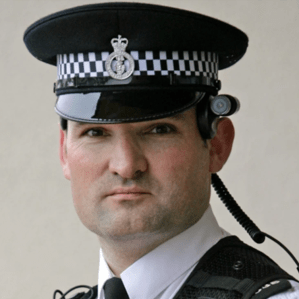
Motorist Tyre Nichols died in Memphis of blunt force head trauma three days after police officers punched, kicked, pepper sprayed, tased, and clubbed him. The beating followed a January 2023 traffic stop for alleged reckless driving, but ABC News reported Memphis police chief CJ Davis’ public statement:
… “the stop itself was very questionable” and investigators “have been unable to verify the reckless driving allegation.“
A day after the incident, five police officers were fired and within two weeks, they were arrested and charged with murder and other felonies. Two sheriff’s deputies were suspended and three emergency service employees were relieved of duties, then discharged. The killers’ supervisor was publicly identified, but retired to avoid internal discipline.
This police-involved assault is unusual, but not because it resulted in death. Washington Post reports that 1,087 people were fatally shot by American police in the past 12 months. The real difference in the Nichols case was the rapid and comprehensive response by Memphis authorities.
Compare to a police homicide in Vancouver that occurred August 13, 2015.
Thirty-three-year-old Myles Gray died after an encounter involving many VPD officers and at least one attack dog. Within a week, BC’s Independent Investigations Office (IIO) began reviewing Gray’s death. VPD announced no suspensions, discipline, or changes to training and supervision of officers.
Seven months later, journalist Cassidy Olivier reported the victim’s family were still in the dark:
In their search for answers, the Grays last month filed a wrongful-death suit in B.C. Supreme Court against the Vancouver Police Department, the Vancouver Police Board, the City of Vancouver and 11 Vancouver police officers identified as John Doe, seven of whom they allege were directly involved in Myles’ death. The suit alleges a host of charges, including that investigating Vancouver police officers deliberately interfered with the IIO’s investigation by failing to immediately notify the IIO of the death as required, and by conferring with the involved officers before IIO investigators arrived.
Two years after the homicide, police officers were refusing to be interviewed, so IIO sought assistance from the Supreme Court. The IIO was already in court petitioning for an order requiring VPD cooperation with the inquiry into the shooting of Daniel Peter Rintoul. At least three officers involved with the fatal incident involving Gray were also involved with Rintoul.
Forty-one months after the death of Myles Gray, IIO concluded its investigation and submitted a report to the BC Prosecution Service recommending charges. At the end of 2020, sixty-four months after VPD officers killed Gray, the BCPS announced that available evidence did not meet its charge assessment standard. The Chief Coroner’s investigation remained “ongoing.”
October 2022, CBC reported:
Four of the Vancouver police officers involved in the death of Myles Gray in 2015 were already under investigation because of an incident that left a man with a broken jaw just six weeks earlier, CBC News has learned.
In addition, one of the four officers is now awaiting a criminal trial for assault related to another arrest that seriously injured a cyclist in 2017.
Though Gray was killed more than seven years ago, his family only recently learned the names of all nine officers who were on the scene when he died.
4 police officers involved in death of Myles Gray faced other brutality allegations, family learns

The coroner’s inquest completed in May with a verdict of homicide and recommendations for all patrol officers to wear audio recording video cameras, for a review of de-escalation and crisis containment training, and for police to reexamine mental health responses.
VPD had already refused the body camera suggestion, saying the force might begin a year-long pilot project involving fewer than ten percent of front-line officers testing the devices. That excuse is feeble considering that body-worn video cameras were first worn in the United Kingdom in 2005 and are widely used across North America today.
It is not the cameras that worry police, it’s the potential accountability.
Eight years after Myles Gray was beaten to death by a police gang, almost nothing has changed in the process of making officers answerable for violent misdeeds. Those VPD officers should count themselves lucky the Memphis chief and prosecutors were not in charge in Vancouver.
Categories: Justice





I live and work in Burnaby.
I drive by the location where Miles Gray was beaten to death ( how else did he die?) almost on a daily basis.
The entire event screams for Justice.
7 police officers couldn’t restrain this man….SEVEN.
(One wonders if they were hoping a toxicology report would exonerate them).
They beat a man to death for “spraying a woman with her own garden hose”.
When first approached, Mr Gray was argumentative and made the female police officer “fear for her safety” so she rolled up her window ( still in her cruiser?).
She had a radio, pepper spray, a gun and (hopefully) the training to use all three…
More officers arrive and Mt Gray is not complying so….he was beaten to death….over a garden hose.
Seems fair……….
7 YEARS to finally have a coroners inquest.
The findings are maddening,
Police officers “were told not to make notes”.
A direct violation of their police training and mandate to “Protect and to Serve”
Who told them not to take notes? “They don’t remember”.
Each and every officer doesn’t remember who told them not to take notes.
The spin and utter disregard for the truth demands that most of these officers are a disgrace to the badge they wear.
As a bare minimum they should be fired.
A lengthy prison sentence for perjury and assault causing death should follow.
I hope the family sues and wins millions of dollars for this travesty of “justice”.
LikeLike
The concept that justice delayed is justice denied can be traced back as far as the Magna Carta and has been restated as a guiding principle by many ever since. Principle but not necessarily practice.
Chief Justice of the United States Warren Burger noted in an address to the American Bar Association in 1970:
“A sense of confidence in the courts is essential to maintain the fabric of ordered liberty for a free people and three things could destroy that confidence and do incalculable damage to society: that people come to believe that inefficiency and delay will drain even a just judgment of its value; that people who have long been exploited in the smaller transactions of daily life come to believe that courts cannot vindicate their legal rights from fraud and over-reaching; that people come to believe the law – in the larger sense – cannot fulfill its primary function to protect them and their families in their homes, at their work, and on the public streets.”
The system in B.C., as evidenced by many examples such as the Myles Gray case, has devolved into a bureaucratic morass that seems to float unguided with no sense or regard for time. Citizens, especially the victims, deserve much better.
As for the Memphis police, I had occasion to contact them almost twenty years ago when one of my sons and I experienced non-delivery of an on-line order. We had done some amateur sleuthing and identified the woman responsible. We gave the Memphis police the details, and they conducted what they termed a “knock and talk” at her residence. She and her university professor husband and accomplice were subsequently charged with numerous offences as a result. I was impressed not only with the way they handled our long distance complaint, but with the way they kept us informed throughout. Incidentally, we received a refund the day after the “knock and talk”. Justice was not delayed in that case.
LikeLiked by 1 person
The American situation moved along much more quickly because in recent years families of those murdered by police officers have sued and been awarded millions of dollars. It prompts admin. to deal with issues.
As to the VPD incident, murder, what ever you want to call it, perhaps the big cover up, or I’ve got a Secret, the city needs a new Police Chief. there have been any number of incidents on his watch and nothing seems to change. I get the impression the VPD now thinks its above the law, it can do as it pleases. If the Chief doesn’t start yanking some chains, perhaps its time he were yanked out of his job. The officers involved in the killing of Grey as you noted weren’t “first time offenders” in the violence against people department. There is also still the stench of the suicide of the young female officer.
Time for a great big clean up at the VPD, starting at the top. Perhaps a rule of 3 strikes and you’re out of the force might help also.
I’m happy Gray’s family has filed a law suit. It would be even better if they were awarded millions upon millions. Perhaps then the Chief and various politicians might take notice.
Thankfully the paramedics were there. At least they told the truth.
Take care of yourself and that heart of yours.
LikeLike
There is something rotten with the police and that rot extends to the Attorney Generals office and Minister of Public Safety and Solicitor General.
The slow pace of police investigations is unacceptable, yet cases drag and on.
There needs to more than culture change, rather an expedited conclusion of criminal cases. In Canada and BC, legal cases are more of a financial benefit to lawyers and judges than anything else. The longer a court case drags on, the wealthier the law profession gets.
Sadly no one in authority wants to change anything and this sad state of affairs will continue.
LikeLike
Civil and criminal courts in British Columbia seem particularly unable to clear cases within reasonable time periods. In England and Wales, most criminal cases are dealt with in Magistrates Courts. According to a January 2023 report:
• There was a median wait of 128 days between an offence being recorded and someone being charged;
• There was a median wait of 35 days between a defendant being charged and the first court listing;
• There was a median time of 196 days between the offence being reported to the completion of the case.
LikeLike